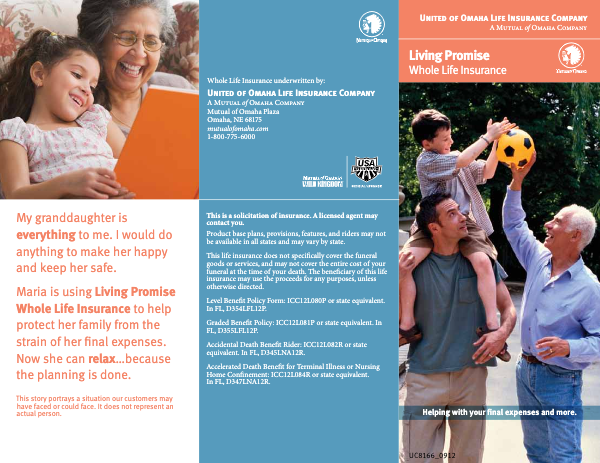Hawaii’s life insurance laws are governed by Title 24 of the Hawaii Revised Statutes.
- 10-day free look period (HI Rev. Stat Ann. 431:10-214)
- 30-day grace period (HI 431:10D-102)
- Insurers must pay interest on claims not paid within 30 days, with interest accruing from the date of death (HI Rev. Stat Ann. 431:10-243)
- Guarantees up to $300,000 for lost death benefits and $100,000 for lost cash surrender value (source)
Keep in mind that life insurance laws are very similar from state to state (for example, Idaho’s life insurance laws and Illinois’s life insurance laws are nearly identical to those of Hawaii).
How Much Is A $10,000 Whole Life Policy In Hawaii?
The table below shows the rates by age of $10,000 of whole life insurance in Hawaii.
| Age | Male | Male (Smoker) | Female | Female (Smoker) |
|---|---|---|---|---|
| 20 | $14.67 | $17.38 | $14.04 | $15.72 |
| 25 | $15.88 | $18.16 | $15.26 | $16.91 |
| 30 | $17.26 | $19.60 | $15.99 | $18.95 |
| 35 | $19.10 | $22.04 | $17.45 | $20.92 |
| 40 | $21.25 | $24.97 | $19.65 | $23.32 |
| 45 | $23.95 | $29.17 | $22.92 | $27.73 |
| 50 | $27.35 | $33.68 | $24.91 | $32.23 |
| 55 | $32.26 | $39.77 | $28.34 | $36.67 |
| 60 | $39.26 | $47.06 | $33.18 | $42.56 |
| 65 | $47.93 | $57.76 | $41.02 | $50.81 |
| 70 | $59.96 | $71.63 | $52.75 | $60.66 |
| 75 | $97.89 | $133.19 | $71.89 | $95.01 |
| 80 | $134.19 | $182.15 | $98.47 | $135.24 |
| 85 | $187.70 | $258.44 | $132.40 | $192.57 |
Choose kindness.
You never know what battles people may be fighting.
Best Life Assurance In #VALUE!
Hilo, nestled on the northeastern shores of Hawaii’s Big Island, is a scenic gem that offers an enchanting mix of natural beauty and rich cultural heritage. Known for its lush rainforests, stunning waterfalls, and vibrant gardens, this tranquil city serves as a gateway to the wonders of Hawaii Volcanoes National Park. Hilo’s downtown area, with its historical buildings, unique shops, and local markets, exudes a charming old-world vibe, inviting visitors to immerse themselves in the island’s history and tradition. Its coastline, characterized by beautiful black sand beaches, provides an ideal setting for a variety of water activities. Whether it’s exploring the depths of its tropical landscapes or enjoying the warmth of its local community, Hilo guarantees an unforgettable Hawaiian experience.
#VALUE!Best Coverage In
East Honolulu, nestled on the southeastern shore of Oahu, is a picturesque community known for its breathtaking coastal views, serene residential areas, and affluent neighborhoods. This Hawaiian gem boasts a blend of natural beauty, with its inviting sandy beaches, rugged cliffs, and lush green landscapes, making it a prime location for both outdoor adventures and tranquil living. From the popular Hanauma Bay, renowned for snorkeling, to the tranquil surroundings of Koko Head District Park, East Honolulu offers a unique blend of leisure activities. Its close proximity to Honolulu’s urban center provides residents and visitors with the best of both worlds: a peaceful, scenic retreat with easy access to city amenities and cultural attractions. Whether you’re seeking a quiet coastal escape or an active lifestyle in a prestigious community, East Honolulu embodies the essence of island living with a touch of luxury.
Choose kindness.
You never know what battles people may be fighting.
Best Policies In
Honolulu, the vibrant capital of Hawaii, is a breathtaking blend of natural beauty and modern allure. Nestled on the island of Oahu, it’s a city where pristine white-sand beaches meet towering skyscrapers, and where local traditions and cosmopolitan living merge seamlessly. Home to the iconic Waikiki Beach and the historic Pearl Harbor, Honolulu is a hub of culture, history, and endless adventure. From indulging in world-class cuisine and exploring lush rainforests to soaking up the rich heritage and vibrant arts scene, Honolulu offers an unparalleled fusion of experiences. Whether you’re seeking relaxation or adventure, this Pacific paradise promises unforgettable moments under the sun.
Best Life Cover In
Waipahu is a vibrant city located in the Ewa District of Oahu, in the beautiful state of Hawaii. Known for its rich history as a sugar plantation town, Waipahu now blends its historical roots with modern-day living. This city is home to a diverse community that enjoys a variety of recreational activities, local shopping, and dining experiences, including authentic Hawaiian and multi-ethnic cuisines. The Waipahu Cultural Garden Park serves as a green oasis and a nod to the area’s past, offering residents and visitors alike a glimpse into the plantation days through its restored plantation village. With its convenient location, just a short drive from Honolulu and the stunning beaches of Oahu, Waipahu offers a unique mix of cultural heritage, community spirit, and natural beauty, making it a cherished spot for both locals and tourists.
Best Life Insurance In
Certainly! But it seems you forgot to mention which city you’d like a description of. Could you please provide the name of the city?
Choose kindness.
You never know what battles people may be fighting.
Top Life Insurance Companies In Hawaii
For the residents of the great state of Hawaii, we at GetSure recommend three carriers: Transamerica, Aetna, and Mutual of Omaha.
Transamerica
| Policy Type | Whole Life |
|---|---|
| States | All except NY |
| Ages | 0 – 85 |
| Coverage | $1,000 – $50,000 (varies by age) |
| Duration | Lifelong |
| Waiting Period | No |
| Rate Lock | Yes |
- Very low prices
- No medical exam
- Flat, never-increasing premiums
- No waiting period
- Underwriting has become stricter (e.g., no insulin)
- Coverage limited to $25,000 for older applicants
- ADHD
- Addisons Disease
- Anxiety Disorder
- Artery Disease
- Arthritis (Psoriatic)
- Arthritis (Rheumatoid)
- Asthma (Chronic)
- Asthma (Mild)
- Atrial Fibrillation
- Autism (High Functioning)
- Autism (Severe)
- Barlows Syndrome
- Bladder Pain (Chronic)
- Blood Clot
- Blood Disorder
- Bone Marrow Transplant
- Brain Tumor (Removed; Benign)
- Bronchitis (Acute)
- COVID-19
- CPAP Use (w/o Oxygen)
- Cancer (Skin)
- Cardioversion Treatment
- Cerebral Palsy
- Chronic Cough
- Chronic Pancreatitis
- Circulatory Disease
- Claudication
- Clogged Arteries
- Coronary Artery Disease
- Crohns Disease
- Declined for Life Insurance
- Depression
- Diabetes (No Insulin)
- Diabetes (With Insulin)
- Disability
- Encephalopathy
- Enlarged Heart
- Enlarged Prostate
- Epilepsy
- Felony
- Fibromyalgia
- Glaucoma
- Gout
- Guillain-Barre Syndrome
- Hashimotos Disease
- Heart Arrhythmia
- Heart Blockage
- Heart Catheterization
- Heart Disease
- Heart Murmur (Functional)
- Heart Murmur (Innocent)
- Hemophilia
- High Blood Pressure
- High Cholesterol
- Irregular Heartbeat
- Irritable Bowel Syn.
- Kidney Stones
- Low Blood Pressure
- Lupus (Non-Systemic)
- Lyme Disease
- Malaria
- Memory Loss
- Mitral Valve Prolapse
- Multiple Sclerosis (MS)
- Muscular Dystrophy
- Myasthenia Gravis
- Narcolepsy
- Neuropathy (Non-Diabetic)
- Osteoarthritis
- Osteoporosis
- PAD
- PTSD
- PVD
- Pagets Disease of the Bone
- Pain (Chronic)
- Pancreatic Insufficiency
- Panic Disorder
- Parole / Probation
- Pernicious Anemia
- Pneumonia
- Pulmonary Embolism
- Pulmonary Sarcoidosis
- Respiratory Failure
- Restless Leg Syndrome
- Scleroderma
- Seizures
- Sepsis
- Shingles
- Sjogrens Syndrome
- Sleep Apnea (No Oxygen)
- Spina Bifida
- Spinal Stenosis
- Stem Cell Transplant
- Suicide Attempt
- Thrombocythemia
- Thrombocytopenia
- Thrombosis (Blood Clots)
- Thyroid Disorders
- Tourettes
- Ulcer
- Ulcerative Colitis
- Unexplained Weight Loss (> 10 lbs)
- Vertigo
- Wegeners Granulomatosis
- Wet Macular Degeneration
- Wolff-Park. Syndrome
- ADL Assistance Required
- Alcohol / Drug Abuse
- Aneurysm (Corrected)
- Aneurysm (Not Corrected)
- Angina
- Angioplasty
- Assisted Living Facility
- Awaiting Surgery
- Awaiting Test Results
- Bedridden
- Brain Tumor (Not Removed; Benign)
- CHF
- CPAP Use (w/Oxygen)
- Cancer (Not Skin)
- Cardiac Ablation
- Cardiomyopathy
- Circulatory Surgery
- Coronary Artery Bypass
- DUI / DWI
- Defibrillator
- Diabetic Coma
- Gastric Bypass
- Heart Attack
- Heart Surgery
- Heart Valve Surgery
- Hemorrhagic Stroke
- Hodgkins Lymphoma
- Home Health Care
- Hospitalization
- Huntingtons Disease
- Hypertrophic Cardiomyopathy
- Insulin Shock
- Intracerebral Hemorrhage
- Lap Band Surgery
- Leukemia
- Liver Disease
- Liver Disorder
- Melanoma
- Multiple Myeloma
- Myocarditis
- Nephropathy
- Neuropathy
- Non-Hodgkins Lymphoma
- Nursing Home
- Organ Transplant (Completed)
- Oxygen (Non-Continuous)
- Oxygen (Sleep Apnea Use Only)
- Oxygen Use (Continuous)
- Pacemaker
- Paralysis
- Paraplegia
- Pending Hospitalization
- Pending Surgery
- Quadriplegia
- Retinopathy
- Sleep Apnea (w/Oxygen)
- Stent Placement
- Stroke / TIA
- Watchman Implant
- Wheelchair (Confined)
- Wheelchair (Not Confined)
Mutual of Omaha
| Policy Type | Whole Life |
|---|---|
| States | All except NY |
| Ages | 45 – 85 |
| Coverage | $2,000 – $50,000 |
| Duration | Lifelong |
| Waiting Period | No |
| Rate Lock | Yes |
- Excellent customer service
- No medical exam
- Flat, never-increasing premiums
- No waiting period
- Moderately strict underwriting
- ADHD
- Addisons Disease
- Anxiety Disorder
- Artery Disease
- Arthritis (Psoriatic)
- Arthritis (Rheumatoid)
- Asthma (Chronic)
- Asthma (Mild)
- Atrial Fibrillation
- Autism (High Functioning)
- Autism (Severe)
- Barlows Syndrome
- Bladder Pain (Chronic)
- Blood Clot
- Blood Disorder
- Bone Marrow Transplant
- Brain Tumor (Removed; Benign)
- Bronchitis (Acute)
- COVID-19
- CPAP Use (w/o Oxygen)
- Cancer (Skin)
- Cardioversion Treatment
- Cerebral Palsy
- Chronic Cough
- Chronic Pancreatitis
- Circulatory Disease
- Claudication
- Clogged Arteries
- Coronary Artery Disease
- Crohns Disease
- Declined for Life Insurance
- Depression
- Diabetes (No Insulin)
- Diabetes (With Insulin)
- Disability
- Encephalopathy
- Enlarged Heart
- Enlarged Prostate
- Epilepsy
- Felony
- Fibromyalgia
- Glaucoma
- Gout
- Guillain-Barre Syndrome
- Hashimotos Disease
- Heart Arrhythmia
- Heart Blockage
- Heart Catheterization
- Heart Disease
- Heart Murmur (Functional)
- Heart Murmur (Innocent)
- Hemophilia
- High Blood Pressure
- High Cholesterol
- Irregular Heartbeat
- Irritable Bowel Syn.
- Kidney Stones
- Low Blood Pressure
- Lupus (Non-Systemic)
- Lyme Disease
- Malaria
- Memory Loss
- Mitral Valve Prolapse
- Multiple Sclerosis (MS)
- Muscular Dystrophy
- Myasthenia Gravis
- Narcolepsy
- Neuropathy (Non-Diabetic)
- Osteoarthritis
- Osteoporosis
- PAD
- PTSD
- PVD
- Pagets Disease of the Bone
- Pain (Chronic)
- Pancreatic Insufficiency
- Panic Disorder
- Parole / Probation
- Pernicious Anemia
- Pneumonia
- Pulmonary Embolism
- Pulmonary Sarcoidosis
- Respiratory Failure
- Restless Leg Syndrome
- Scleroderma
- Seizures
- Sepsis
- Shingles
- Sjogrens Syndrome
- Sleep Apnea (No Oxygen)
- Spina Bifida
- Spinal Stenosis
- Stem Cell Transplant
- Suicide Attempt
- Thrombocythemia
- Thrombocytopenia
- Thrombosis (Blood Clots)
- Thyroid Disorders
- Tourettes
- Ulcer
- Ulcerative Colitis
- Unexplained Weight Loss (> 10 lbs)
- Vertigo
- Wegeners Granulomatosis
- Wet Macular Degeneration
- Wolff-Park. Syndrome
- ADL Assistance Required
- Alcohol / Drug Abuse
- Aneurysm (Corrected)
- Aneurysm (Not Corrected)
- Angina
- Angioplasty
- Assisted Living Facility
- Awaiting Surgery
- Awaiting Test Results
- Bedridden
- Brain Tumor (Not Removed; Benign)
- CHF
- CPAP Use (w/Oxygen)
- Cancer (Not Skin)
- Cardiac Ablation
- Cardiomyopathy
- Circulatory Surgery
- Coronary Artery Bypass
- DUI / DWI
- Defibrillator
- Diabetic Coma
- Gastric Bypass
- Heart Attack
- Heart Surgery
- Heart Valve Surgery
- Hemorrhagic Stroke
- Hodgkins Lymphoma
- Home Health Care
- Hospitalization
- Huntingtons Disease
- Hypertrophic Cardiomyopathy
- Insulin Shock
- Intracerebral Hemorrhage
- Lap Band Surgery
- Leukemia
- Liver Disease
- Liver Disorder
- Melanoma
- Multiple Myeloma
- Myocarditis
- Nephropathy
- Neuropathy
- Non-Hodgkins Lymphoma
- Nursing Home
- Organ Transplant (Completed)
- Oxygen (Non-Continuous)
- Oxygen (Sleep Apnea Use Only)
- Oxygen Use (Continuous)
- Pacemaker
- Paralysis
- Paraplegia
- Pending Hospitalization
- Pending Surgery
- Quadriplegia
- Retinopathy
- Sleep Apnea (w/Oxygen)
- Stent Placement
- Stroke / TIA
- Watchman Implant
- Wheelchair (Confined)
- Wheelchair (Not Confined)
Aetna
 “Protection Series” Whole Life Insurance
“Protection Series” Whole Life Insurance
| Policy Type | Whole Life |
|---|---|
| States | All except AK, CA, DC, HI, MA, ME, MN, NY, ND, SD, WA |
| Ages | 45 – 89 |
| Coverage | $2,000 – $50,000 (varies by age) |
| Duration | Lifelong |
| Waiting Period | No |
| Rate Lock | Yes |
- Lenient underwriting
- Shortest application, industry-wide
- Automated underwriting (approval potentially in minutes)
- No medical exam
- Flat, never-increasing premiums
- N/A
- ADHD
- Addisons Disease
- Anxiety Disorder
- Artery Disease
- Arthritis (Psoriatic)
- Arthritis (Rheumatoid)
- Asthma (Chronic)
- Asthma (Mild)
- Atrial Fibrillation
- Autism (High Functioning)
- Autism (Severe)
- Barlows Syndrome
- Bladder Pain (Chronic)
- Blood Clot
- Blood Disorder
- Bone Marrow Transplant
- Brain Tumor (Removed; Benign)
- Bronchitis (Acute)
- COVID-19
- CPAP Use (w/o Oxygen)
- Cancer (Skin)
- Cardioversion Treatment
- Cerebral Palsy
- Chronic Cough
- Chronic Pancreatitis
- Circulatory Disease
- Claudication
- Clogged Arteries
- Coronary Artery Disease
- Crohns Disease
- Declined for Life Insurance
- Depression
- Diabetes (No Insulin)
- Diabetes (With Insulin)
- Disability
- Encephalopathy
- Enlarged Heart
- Enlarged Prostate
- Epilepsy
- Felony
- Fibromyalgia
- Glaucoma
- Gout
- Guillain-Barre Syndrome
- Hashimotos Disease
- Heart Arrhythmia
- Heart Blockage
- Heart Catheterization
- Heart Disease
- Heart Murmur (Functional)
- Heart Murmur (Innocent)
- Hemophilia
- High Blood Pressure
- High Cholesterol
- Irregular Heartbeat
- Irritable Bowel Syn.
- Kidney Stones
- Low Blood Pressure
- Lupus (Non-Systemic)
- Lyme Disease
- Malaria
- Memory Loss
- Mitral Valve Prolapse
- Multiple Sclerosis (MS)
- Muscular Dystrophy
- Myasthenia Gravis
- Narcolepsy
- Neuropathy (Non-Diabetic)
- Osteoarthritis
- Osteoporosis
- PAD
- PTSD
- PVD
- Pagets Disease of the Bone
- Pain (Chronic)
- Pancreatic Insufficiency
- Panic Disorder
- Parole / Probation
- Pernicious Anemia
- Pneumonia
- Pulmonary Embolism
- Pulmonary Sarcoidosis
- Respiratory Failure
- Restless Leg Syndrome
- Scleroderma
- Seizures
- Sepsis
- Shingles
- Sjogrens Syndrome
- Sleep Apnea (No Oxygen)
- Spina Bifida
- Spinal Stenosis
- Stem Cell Transplant
- Suicide Attempt
- Thrombocythemia
- Thrombocytopenia
- Thrombosis (Blood Clots)
- Thyroid Disorders
- Tourettes
- Ulcer
- Ulcerative Colitis
- Unexplained Weight Loss (> 10 lbs)
- Vertigo
- Wegeners Granulomatosis
- Wet Macular Degeneration
- Wolff-Park. Syndrome
- ADL Assistance Required
- Alcohol / Drug Abuse
- Aneurysm (Corrected)
- Aneurysm (Not Corrected)
- Angina
- Angioplasty
- Assisted Living Facility
- Awaiting Surgery
- Awaiting Test Results
- Bedridden
- Brain Tumor (Not Removed; Benign)
- CHF
- CPAP Use (w/Oxygen)
- Cancer (Not Skin)
- Cardiac Ablation
- Cardiomyopathy
- Circulatory Surgery
- Coronary Artery Bypass
- DUI / DWI
- Defibrillator
- Diabetic Coma
- Gastric Bypass
- Heart Attack
- Heart Surgery
- Heart Valve Surgery
- Hemorrhagic Stroke
- Hodgkins Lymphoma
- Home Health Care
- Hospitalization
- Huntingtons Disease
- Hypertrophic Cardiomyopathy
- Insulin Shock
- Intracerebral Hemorrhage
- Lap Band Surgery
- Leukemia
- Liver Disease
- Liver Disorder
- Melanoma
- Multiple Myeloma
- Myocarditis
- Nephropathy
- Neuropathy
- Non-Hodgkins Lymphoma
- Nursing Home
- Organ Transplant (Completed)
- Oxygen (Non-Continuous)
- Oxygen (Sleep Apnea Use Only)
- Oxygen Use (Continuous)
- Pacemaker
- Paralysis
- Paraplegia
- Pending Hospitalization
- Pending Surgery
- Quadriplegia
- Retinopathy
- Sleep Apnea (w/Oxygen)
- Stent Placement
- Stroke / TIA
- Watchman Implant
- Wheelchair (Confined)
- Wheelchair (Not Confined)





